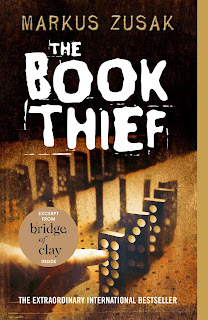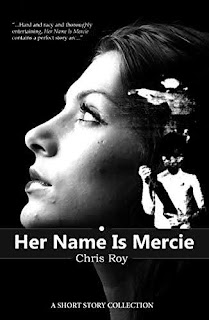New Book Alert: Nothing Good Happens After Midnight: A Suspense Magazine Anthology Edited by Jeffrey Deaver; Sinfully Great Short Stories From Talented Suspense and Mystery Authors
By Julie Sara Porter
Bookworm Reviews
Spoilers: This is certainly a Halloween treat for me to read not one but two horror suspense anthologies during the creepiest most haunting month of the year. The previous anthology, Her Name is Mercie offered a few good creepy stories alongside others that weren't quite as good. It was a hit and a miss.
However, the anthology Nothing Good Happens After Midnight is a definite hit. Several mystery and suspense authors pooled their resources to create a great anthology that is perfect for curling up at night to a chilled wind whistling through the trees and raindrops plinking on the windows. Right when the room is still and quiet and you wonder if those footsteps outside your door are your spouse, your dog, or something else. Right when the ringing of your phone is enough to make you leap out of your skin in terror. Yes it's that kind of anthology.
The best stories in this collection are:
"12:01 A.M." by Alan Jacobsen-
I have previously spoken about how much I enjoy being introduced to new detectives and series protagonists in these anthologies and this one is no exception. On the eve of the execution of Stephen Ray Vaughan (serial killer not musician and no relation), FBI profiler, Karen Vail investigates the abduction of a woman in which the modus operandi bears a strong similarity to Vaughn's kidnapping and murder style. Did Vaughn have an unknown accomplice? Is there a copycat killer? Or is it entirely possible that Vaughn, scum that he is, is innocent and the real killer is out there?
Vail makes a commendable lead. She has the same cynical wit and gallows humor of her male colleagues. ("Crap I forgot to bring popcorn for the show," she says before going to interrogate Vaughn). She also uses the profiler's talents of recognizing how the killer acts and moves with a detachment that sides with the victims. She recognizes the possible copycats' trail but still thinks the killer deserves punishment.
The suspense mounts as Vail's instincts and investigation brings her to the copycat killer and she learns that sometimes a murderers' actions aren't over even after they are arrested and executed. Sometimes violence passes to the next generation.
"All Aboard" by Hank Phillippi Ryan
A train is a great location for a suspense story. Agatha Christie knew this when she wrote Murder on the Orient Express. Alfred Hitchcock knew this when he directed Strangers on a Train. Hank Phillippi Ryan knows this when she wrote "All Aboard", a tense short story revealing that we don't know what goes in the head of complete strangers with whom we travel alongside.
Cady Armistead, a public relations fixer, is traveling to Boston when she overhears a woman,whom she dubs Cruella, in the next car planning on committing a crime. During a fire alarm the train is evacuated and Cady finds herself right next to the murderer-to-be.
The train offers a claustrophobic almost sinister setting as Cady listens in on the conversation vying with her personal and professional curiosity to get involved and her fear whether doing so could be at the expense of her own life. The exchange between Cady and Cruella is both biting and tense as Cady subtly tries to get information from Cruella then suggests an alternative. (Cruella: You're not going to hurt her? I mean physically? Cady: Please this isn't the movies. This is business. Civilized business). In fact with the limited cast of mostly two characters and the setting taking place in and out of the train, "All Aboard” could make a decent short play or film.
"Gone Forever" by Joseph Badal
Despite the news focused mostly on the Coronavirus pandemic, protests against police brutality, and the 2020 election, mass murders are hardly yesterday's news. They are still remembered and the victims are grieved over and still the questions of gun control, mental health, and how to stop the next crime are endlessly debated. Joseph Badal's short story, "Gone Forever" reminds us of that.
The comparisons to this fictional account to the real life 2015 Charleston shooting in which White Supremacist and gunman, Dylan Roof entered the historically black Emmanuel African Methodist Episcopal Church and killed nine people is all too achingly similar.
In this story, homicide detectives, Barbara Lassiter and Susan Martinez investigate the gruesome aftermath of a murder in which a man murdered several people in a church with a machete.
The accounts are chilling as the detectives talk to witnesses who saw the man just carelessly hack into parishioners, such as a father and his daughter who was beginning her novitiate training. The scene is hard to comprehend and picture.
The most disturbing thing about this story is the impact the murder has on the survivors, particularly Lucas, the novitiate's brother. Lucas goes from a decent young man of deep faith to a vengeful bitter cynic ready to commit murder against those who sees as unworthy and Satanic. Badal's writing replaces one terrorist with another, showing that sometimes when evil dies, it is then reborn into another person.
"Midnight in the Garden of Death" by Heather Graham
Cemeteries are creepy. Cemeteries in Louisiana are creepier and a ghost story set in a Louisiana cemetery is bound to be as creepy as all get out as Heather Graham demonstrates in her story "Midnight in the Garden of Death."
A group of teenagers visit Barclay Cemetery in order to scare each other with ghost stories and pranks. This is a golden opportunity for Marcy, one of the girls. Her father is the groundskeeper of the cemetery and she gives the cool kids access to the place so she could be perceived as brave and seen as a member of their inner circle. Why she may end up with football player, Tommy Hilliard who would surely dump his girlfriend, Tiffany, for her. The kids have fun until a local cop warns them that a strange man is seen around town and fits the profile of a killer known as the City Slicer. So despite the warnings the kids remain and have a pretty terrifying night (No one said these teenagers were smart.)
The atmosphere is particularly creepy with its sensory imagery. Graham describes the moonlit cemeteries as "the moon had certainly made the moon brighter-but it had also allowed for strange shadows to form. And just tonight. She thought she'd seen a shadow move."
The atmosphere builds up to a terrifying conclusion when the kids learn that monsters do exist and they don't care where in the school's popularity rank you are. You are just as likely to die as anyone.
"A Creative Defense" by Jeffrey Deaver
Music has the power to incite movements, cause people to fall in love, soothe worries, or build tension. Then, like in Jeffrey Deaver's "A Creative Defense", some songs can be a real killer.
Beth Tollnar attends a symphony concert with her boyfriend, Robert. One of those pieces is "The Moonlight Sonatina", a piece that is rarely performed. The next day, Robert begins to act strange. He zones out and hums the same four notes over and over. Then he takes a knife and stabs their annoying neighbors. After researching "The Moonlight Sonatina," Beth learns that similar occurrences have happened over the centuries every time the song has been played in concert.
This story plays on the whole idea of supernatural curses rather well. It is chilling to read normal people transform into psychotic killers after listening to the music.
Deaver's story also gives us a fascinating pair of antagonists neither of which are named: the mysterious conductor of the symphony and his premier violinist, a bewitching redhead. They appear to have a deep connection to the Sonatina that goes back a few years. When the conductor vows that "no one will ever stop (them) from performing the piece", he means it.
"After Midnight Cinderella Then and Now" by Rhys Bowen
Rhys Bowen, author of the Her Royal Spyness and Molly Murphy Mysteries, leant her writing skills to a two part adaptation of Cinderella, giving a more mysterious, darker, and deeper meaning to the famous fairy tale.
The first is set immediately after Cindy left the ball. On her way home, a horseman stops Cinderella to inquire about a jewel theft in which a countess lost her ruby necklace at the famous ball. Cinderella is a quick talker as she stands up for herself in front of the misogynistic snobbish horseman. She also uses deductive reasoning to learn who really had stolen the necklace and give herself a victory over her spiteful stepsisters long before the Prince matches her foot to the slipper.
The second part of the story transplants the Cinderella Story to modern day when Hal Benson, a Not So Prince Charming sleazy music producer, picks up Jolene Kent, an aspiring country singer that had enough of Nashville and wants to go home to California. While the Cinderella theme is more subtle by replacing a prince's palace with a country music recording studio, and a woman's dream about going to the ball and marrying a prince with another woman's dream of achieving fame and fortune through a musical career. It also modernizes what happens during the morning after when the wealthy prince abandons the beautiful girl and puts her back in rags. In this story, Hal's past sins come back to haunt and then attack him. This Prince Charmless has a lot to answer for and he does in a violent way.
"Tonight is the Night" by Shannon Kirk
Setting plays a lot into these stories like Ryan's "All Aboard" set on a train and Graham's "Midnight in the Garden of Death." Another story that takes full advantage of its setting to portray a cold snowy area waiting in anticipation of a possible murder.
In Richard's Mountain, Vermont George is looking forward to professing his love to a female friend. While waiting at the local bar, George hears a news report about The Spine Ripper who has murdered eight people so far. The small town setting is well written with the locals who have their odd quirks like always sitting in specific spots at the local bar or the bartender who doesn't like anything to be playing on the bar's TV but the football game.
The cold chill and the snowy landscape prove to be a strong telling backdrop as George is left alone on the mountain to find some of his items missing. It is a landscape where an approaching figure could resemble a wild animal or a robot and could commit violence and no one would never know. George's confrontation in the blizzard is intended to be a chilling experience (pun not intended). It's the type of story that has such a well written setting that the Reader needs to swallow a gallon of tea or hot chocolate to warm up afterwards.







